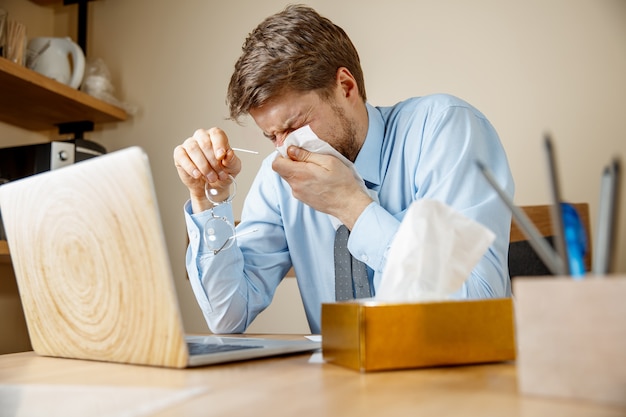
Sneezing is something everyone does, and it’s a natural way for our noses to clean themselves. Tiny hairs inside our noses trap dust and harmful particles, and sneezing helps expel these unwanted intruders.
Sneezing a couple of times a day is usually harmless and not a sign of a health problem. However, sneezing multiple times in a row could indicate an infection or an impending illness.
People sneeze for various reasons, which can differ from person to person. Some common triggers include dust allergies, bright sunlight, viruses, cold weather, seasonal changes, smoky air, air conditioning, spicy foods, pets, and certain plants.
When dust particles enter the nose, the tiny hairs send a signal to the brain to initiate a sneeze. Sneezing involves multiple body parts, including the throat, belly, eyes, and mouth, which all work together.
Bright sunlight can also trigger sneezing in some people due to a reflex known as the photic sneeze reflex. This happens when looking directly at bright light, causing an allergic reaction.
Cold weather can lead to sneezing for many people, suggesting an allergy to the cold. This can be an early sign of a cold, fever, or cough, signaling that extra care is needed to prevent illness.
Seasonal changes affect our health and can cause sneezing due to allergies. These allergies are common and can spread germs through sneezing, affecting those nearby.
Smoky air is another trigger, especially for those allergic to smoke. Staying away from smokers can help avoid this kind of allergy.
Air-conditioned environments can cause sneezing if the body doesn’t adapt well to the cold air. It’s best to avoid sitting directly in the path of A.C. vents to prevent sneezing.
Spices can also lead to sneezing, known as a spice allergy. This is common in cooking environments and varies from person to person.
Pet dander can cause sneezing for those allergic to it. Maintaining a distance from pets that trigger this reaction can help manage the allergy.
Certain plant leaves can cause sneezing due to their smell or particles. Avoiding contact with these plants can prevent this reaction.
Chronic sneezing can be a sign of a more serious health issue, especially for those with existing conditions like nosebleeds, migraines, or heart problems. It’s important to avoid allergens and take precautions if you suffer from these health issues to prevent additional discomfort.
Frequent sneezing should not be ignored as it could indicate underlying health concerns. It’s wise to consult a doctor to determine the cause and appropriate treatment.
Day-to-day precautions like using tissues, maintaining hygiene, wearing masks, and sunglasses can help protect against sneezing triggered by pollution and other allergens.
Sneezing can also indicate the onset of various illnesses such as colds, fevers, malaise, throat pain, or allergies. Avoiding known triggers can help maintain overall health.